Modern Flirtations: A Novel
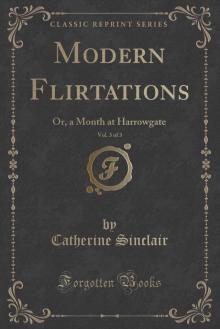

Author: Catherine Sinclair
Category: Fiction
Published: 2013
Series:
View: 357
Read OnlineIt was the rule of a celebrated equestrian, which might be adapted to authors as well as to horsemen, that every one should ride as if he expected to be thrown, and drive as if he expected to be upset. Impunity in publishing, far from rendering an author presumptuous, should tend rather to increase his timidity, the danger being greater always of venturing too much, than of hazarding too little; and the more cause any writer has to feel grateful for the lenient judgment of an enlightened public, the more circumspect should he become, not to trespass by an obtrusive reappearance on that notice which has already perhaps been, as in respect to the author herself, beyond all expectation favorable.An old proverb declares that "a goose-quill is more powerful than a lion's claw," and authors have been called "keepers of the public conscience;" but no influence is perhaps so extensive as that exercised by what is termed "light reading," which has now in a great measure superseded public places and theatrical entertainments, affording a popular resource with which the busiest men relax their hard-working minds, and the idlest occupy their idleness. It becomes a deep responsibility, therefore, of which the author trusts she has ever felt duly sensible, to claim the leisure hours of so many, while it is her first desire that whatever be the defect of these pages, no actual evil may be intermingled, and the cause of sound religion and morality supported, for her feelings are best expressed in the words of the poet,"If I one soul improve, I have not liv'd in vain."Novel-reading, formerly considered the lowest resource of intellectual vacuity, has been lately promoted to a new place in the literary world, since men of the brightest genius as well as of the highest attainments in learning and philosophy, allow their pens occasionally to wander in the attractive regions of fiction; therefore works of imagination, no longer merely a clandestine amusement to frivolous minds, are now avowedly read and enjoyed, to beguile an idle hour, or to cheer a gloomy one, by men of science, of wisdom, and of piety. Such is the general encouragement given now to works of fancy, that, as the literary existence of authors depends on attracting readers, there will scarcely be encouragement enough soon to induce historians and biographers to dip the pen of veracity into the ink of retrospection, while it is perhaps to be lamented that when so large a proportion of the public attention is occupied by novelists, their works being certain of instant circulation, for a very short period and for no more, few authors afford themselves time to aspire at the highest grade of imaginary composition. When such volumes are really true to nature, they convey very important truths in a form more popular than a dry sententious volume of moral precepts, and perhaps history itself can scarcely afford so graphic a portrait of human life as many of those fictitious volumes, written under the inspiration of genius, which portray in vivid coloring, the thoughts and motives by which men are internally influenced.
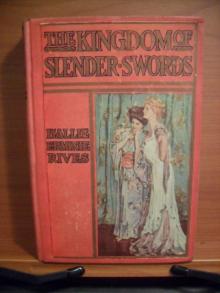 The Kingdom of Slender Swords
The Kingdom of Slender Swords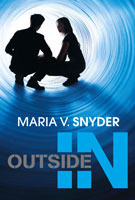 Outside In
Outside In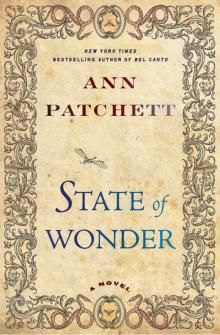 State of Wonder
State of Wonder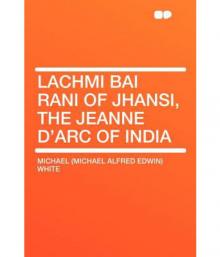 Lachmi Bai, Rani of Jhansi: The Jeanne D'Arc of India
Lachmi Bai, Rani of Jhansi: The Jeanne D'Arc of India The Boy Spies of Philadelphia
The Boy Spies of Philadelphia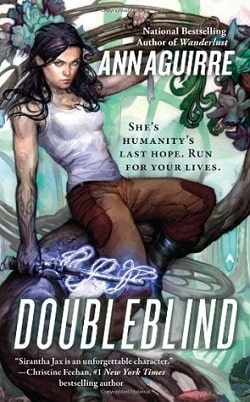 Doubleblind (Sirantha Jax 3)
Doubleblind (Sirantha Jax 3) The Hunt
The Hunt Finding Boaz
Finding Boaz